Relationships are primarily about communication. Communication is built on active listening, clarity, empathy, openness, non-verbal cues, context awareness, and mutual respect. Relationships influence not only our personal lives but also parenting, work, society, and overall well-being. These books on relationships and communication can help you better understand yourself, learn to communicate more effectively, and most importantly, recognize the value of relationships in all their forms—even those with yourself.
John Gottman — The Seven Principles for Making Marriage Work
Evidence-based advice for creating and maintaining healthy and long-lasting relationships. Gottman, the founder of the Institute for Relationship Research, offers a methodology grounded in his decades of research on couples and their emotional connection.
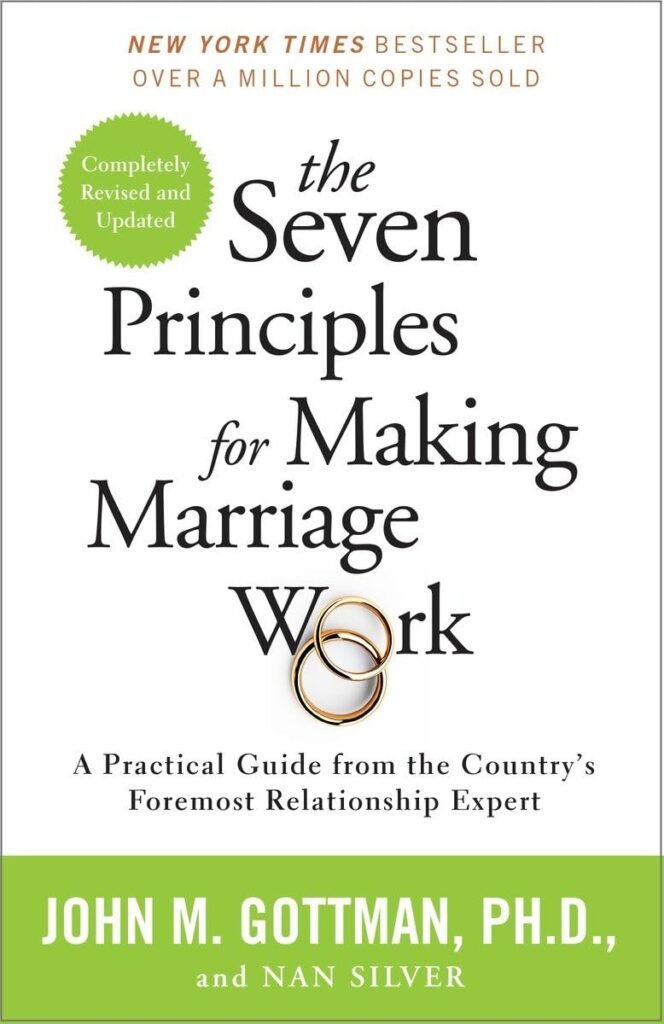
The author highlights seven key principles that help build a successful marriage:
- Building friendship and a positive emotional connection. Gottman emphasizes the importance of maintaining an emotional bond between partners. The stronger the friendship, the better the marriage.
- Conflict resolution. Gottman offers strategies for constructively resolving conflicts without resorting to insults or negative emotions.
- Supporting shared values. Common beliefs and goals help couples navigate challenges together, creating a foundation for stability and growth in the relationship.
- Supporting your partner’s desires. The importance of showing interest in your partner’s wishes, goals, and needs, which strengthens emotional closeness.
- Maintaining physical closeness. Sensual contact and intimacy play a significant role in preserving the emotional bond.
- Creating opportunities for growth. Gottman emphasizes the importance of supporting each other’s personal development and mutual growth.
- Managing stress together. Learning to work through difficulties as a team, supporting each other during tough times.
Key points
- The Four Horsemen of the Apocalypse — criticism, contempt, defensiveness, and stonewalling — are the main destroyers of relationships. They can be replaced with gratitude, healthy communication, and mutual responsibility.
- The most common causes of breakups are a lack of commitment, communication issues, infidelity, and emotional detachment.
- The foundation of healthy relationships is mutual support, shared values, attention to each other’s needs, sincere respect, and care.
The main principles of the book include creating “love maps” (a deep understanding of your partner), nurturing admiration for each other, resolving conflicts through dialogue, learning to live with unsolvable problems, and forming shared meanings. You can read more here.
Marshall Rosenberg — Nonviolent Communication
This methodology, which the author calls the “language of life,” teaches how to express feelings and needs without accusations and demands, while respecting the feelings and needs of others.
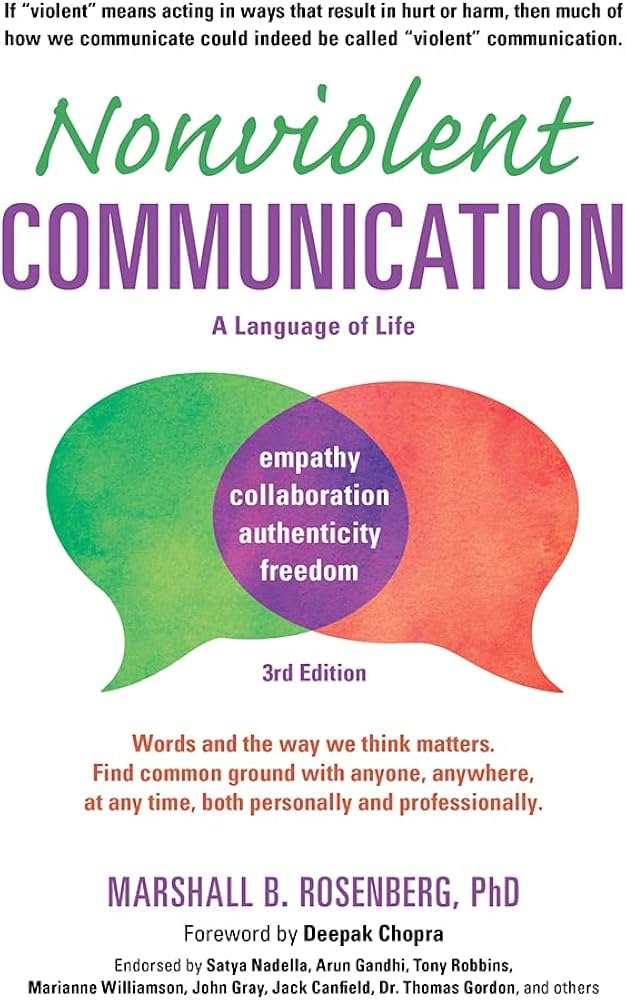
The four main steps of Nonviolent Communication—observation, feelings, needs, and requests—are explained through real-life examples, making the methodology accessible and easy to understand. By discussing our own observations, feelings, needs, and expressing requests for change, we maintain an ecological atmosphere, leaving minimal room for negativity.
A key value of this approach is the emphasis on taking responsibility for our own emotions: instead of blaming others, the author encourages us to understand what triggers us and how we can more effectively express our needs. Rosenberg also explains the different types of needs, providing an opportunity to better understand ourselves and others.
The Nonviolent Communication methodology offers a new perspective on relationships, as it changes the very paradigm of interaction: instead of blaming and arguing, we learn to listen and understand each other. Read more here.
Kerry Patterson, Joseph Grenny, Ron McMillan, Al Switzler — Crucial Conversations: Tools for Talking When Stakes Are High
A highly useful book for anyone facing difficult discussions, especially in situations where opinions diverge, emotions run high, and the outcome is important. The authors provide a clear strategy that helps to speak without fear, aggression, or avoiding the issue.
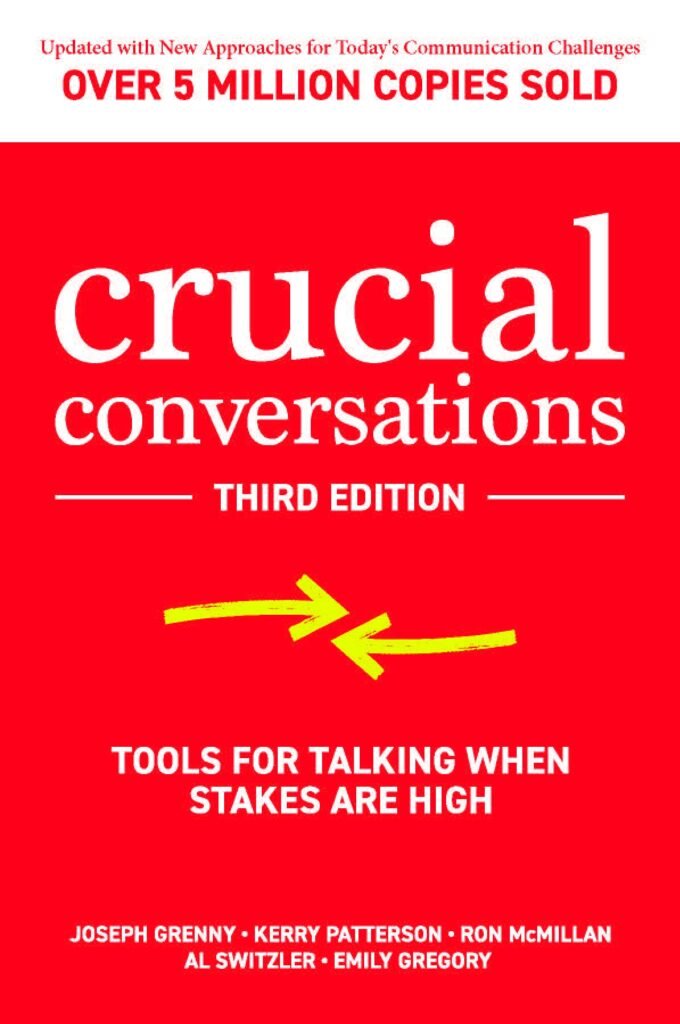
Essentially, this book is an extension of Nonviolent Communication, filled with practical examples that help understand how to communicate effectively in various situations. While the book primarily addresses business environments, it is still engaging and applicable to personal life situations.
The main idea of the book is that the quality of our relationships and professional life largely depends on how we communicate during critical moments. The authors explain how to maintain composure, become aware of our emotions, and sustain an atmosphere of trust even in conflict situations. They offer specific techniques for avoiding defensive reactions from the other person, properly formulating our thoughts, and creating a “safe space” for dialogue.
The book contains many practical recommendations, including methods such as “start with the heart” (defining your true intentions), “contrasting” (clarifying misunderstandings), and “tell your story” (expressing your point of view without pressure).
Amy and Thomas Harris — Staying OK
Staying OK is an excellent introduction to transactional analysis theory, building on the ideas of Eric Berne presented in his work Games People Play. Unlike Berne’s book, which can be difficult to understand, Staying OK offers a practical and accessible approach to studying human interaction and gaining a deeper understanding of oneself.

The authors provide a detailed explanation of the three ego states: Parent, Child, and Adult, which shape our thoughts, feelings, and behavior. The primary focus is on developing the Adult state—the rational and analytical aspect of our personality that helps us make conscious decisions.
The book also explores four life positions, with the ideal one being “I’m OK — You’re OK.” It is from this position that healthy communication and productive collaboration are possible. Additionally, the authors describe six types of transactions, ranging from avoidance and rituals to genuine intimacy based on sincerity and mutual respect.
Staying OK is a continuation of the bestseller I’m OK – You’re OK, where Thomas and Amy Harris deepen the concept of transactional analysis, offering practical tools for maintaining mental health, personal growth, and harmonious relationships. These books are excellent for better understanding oneself and others. Read more here.
Sue Johnson — Hold Me Tight
Sue Johnson, the founder of Emotionally Focused Therapy (EFT), explains why emotional connection is the key to lasting love and how partners can strengthen their relationships, even when they are in a state of crisis.
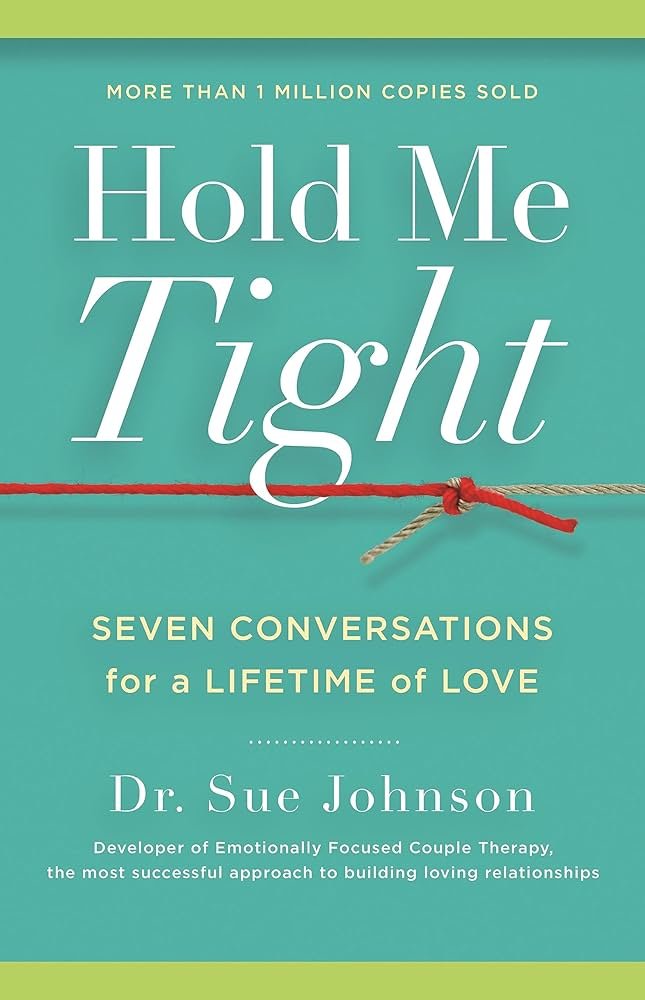
The author bases her conclusions on decades of scientific research and clinical practice, proving that love is not just a chemical reaction or romantic ideal, but a deep psychological need for emotional safety. She explores seven dialogues that help couples openly talk about their fears, insecurities, and desire to be heard.
What is especially valuable is that the book includes specific examples and exercises that help readers better understand their behavioral patterns in relationships and learn how to communicate with their partner in a way that fosters trust and intimacy.
This book will be useful not only for couples who want to improve their relationships but also for anyone interested in the nature of love, emotional connection, and relationship psychology. Read more here.
Richard Schwartz — You Are the One You’ve Been Waiting For
Richard Schwartz, the creator of the Internal Family Systems (IFS) method, explains how each of us is made up of different “parts” that can conflict with each other, creating tension, fears, and doubts. He offers an alternative approach to self-awareness and healing, where the key role is played by our “True Self” — a deep, wise, compassionate essence that can harmonize all these parts.
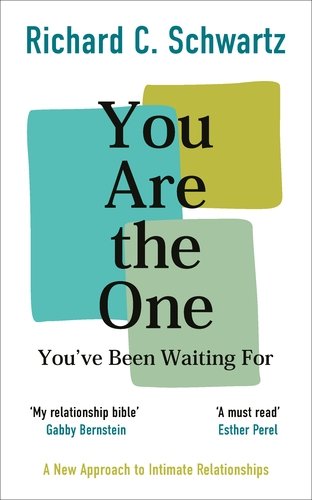
Schwartz explains how childhood trauma, defense mechanisms, and unconscious beliefs affect our behavior, and offers practical methods for learning to listen to and interact with our internal parts without judgment. He emphasizes the importance of self-compassion, acceptance, and dialogue with oneself.
Harmony and inner peace are achieved not through fighting with oneself, but through gentle, mindful acceptance of all parts of one’s personality. And when two people engage in this kind of joint work in a relationship, it creates a true sense of home.
Read more here.
Vivek Murthy — Together
How loneliness can affect a person and why it is important to understand the difference between loneliness and depression. Murthy identifies three types of relationships that we all need for emotional well-being: trusting intimate relationships, socialization, and tribe, each of which plays its role in our lives. He argues that the absence of at least one of these relationships can lead to deep loneliness, which can easily be mistaken for depression.
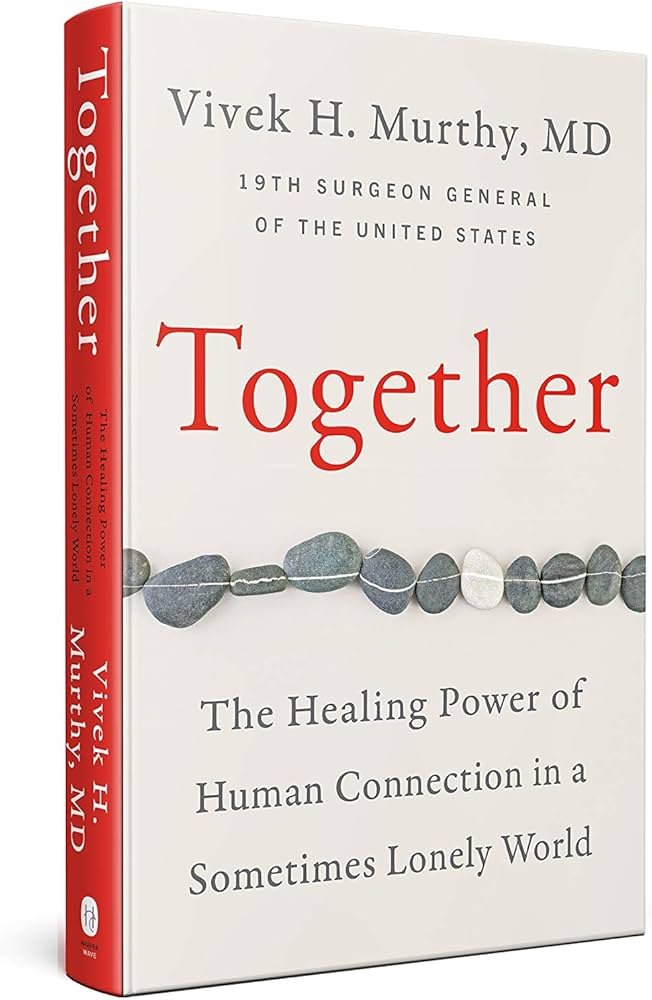
The author also emphasizes the importance of connections for mental health, citing statistics showing that lonely people are more likely to suffer from depression and suicidal thoughts. In fact, this book is not about loneliness, but about unity.
You can read more in this article, where I also awkwardly, but appropriately, weave in the book “On the Other Side of Yourself“ by Iryna Reva, which addresses the topic of social isolation caused by historical traumas in Ukraine and how this impacts modern relationships and mutual understanding. She emphasizes the importance of emotional and physical connections for the health of society, noting that our ability to form deep relationships requires constant effort and restoration.
Books on Relationships, Summary
This post consists of brief reviews of the best books on relationships that have come into my hands. Not all of them are about relationships in the traditional sense of the word. They are about better understanding oneself and others, more effective communication, and the importance of relationships as the foundation of our existence on this planet, from interactions with ourselves to international relations.
I would be happy to contribute to the translation of books on self-awareness and relationships that are not yet available on the Ukrainian market – feel free to invite me for collaboration.



